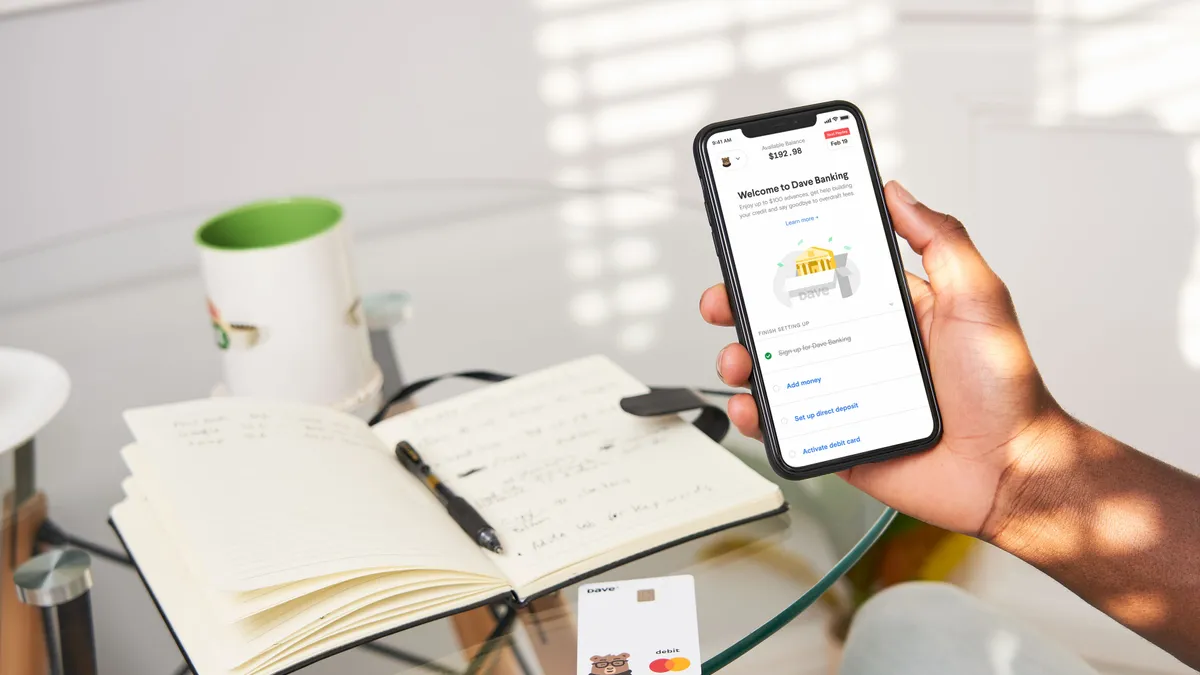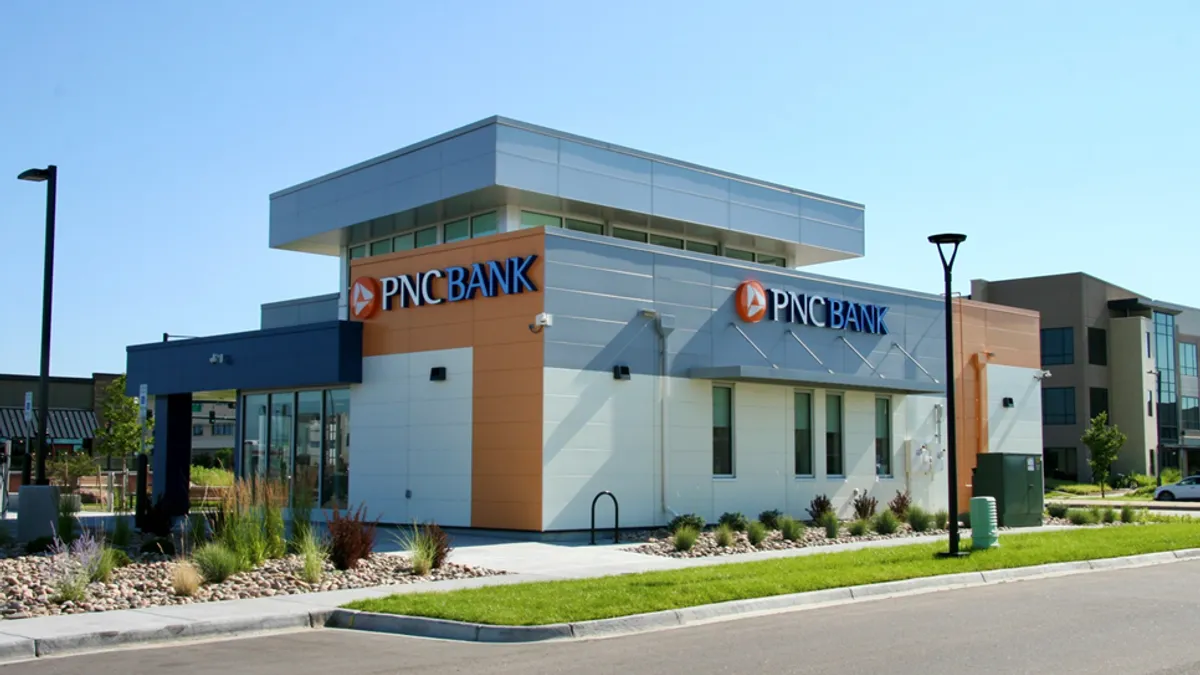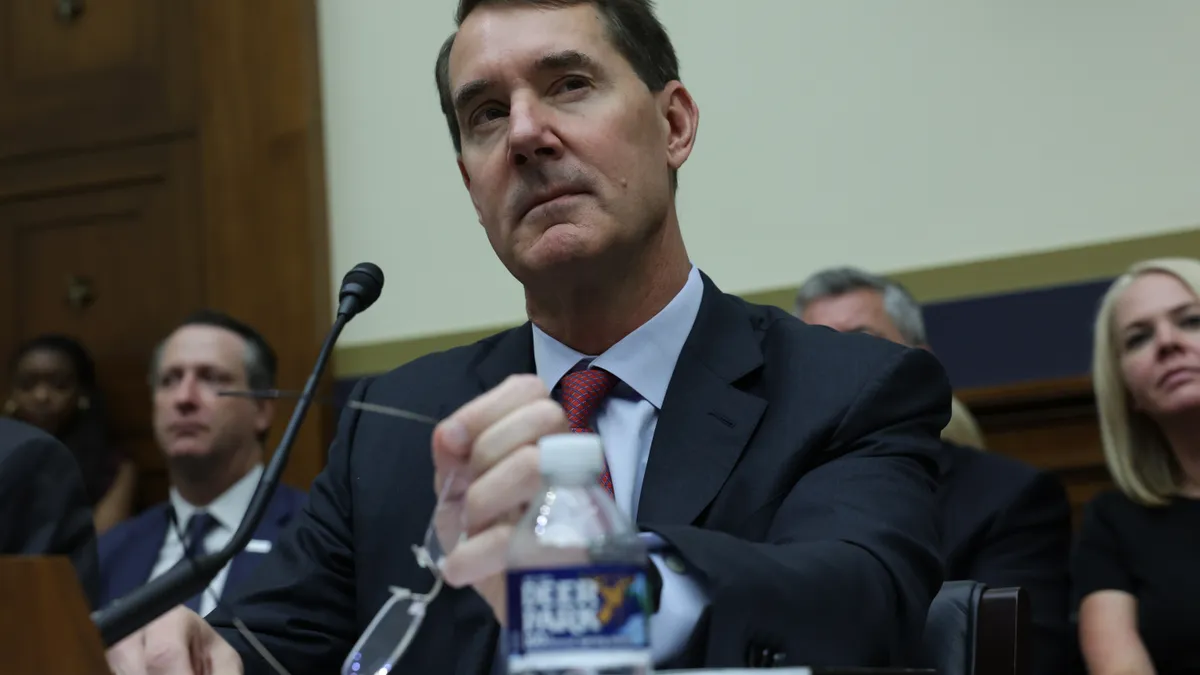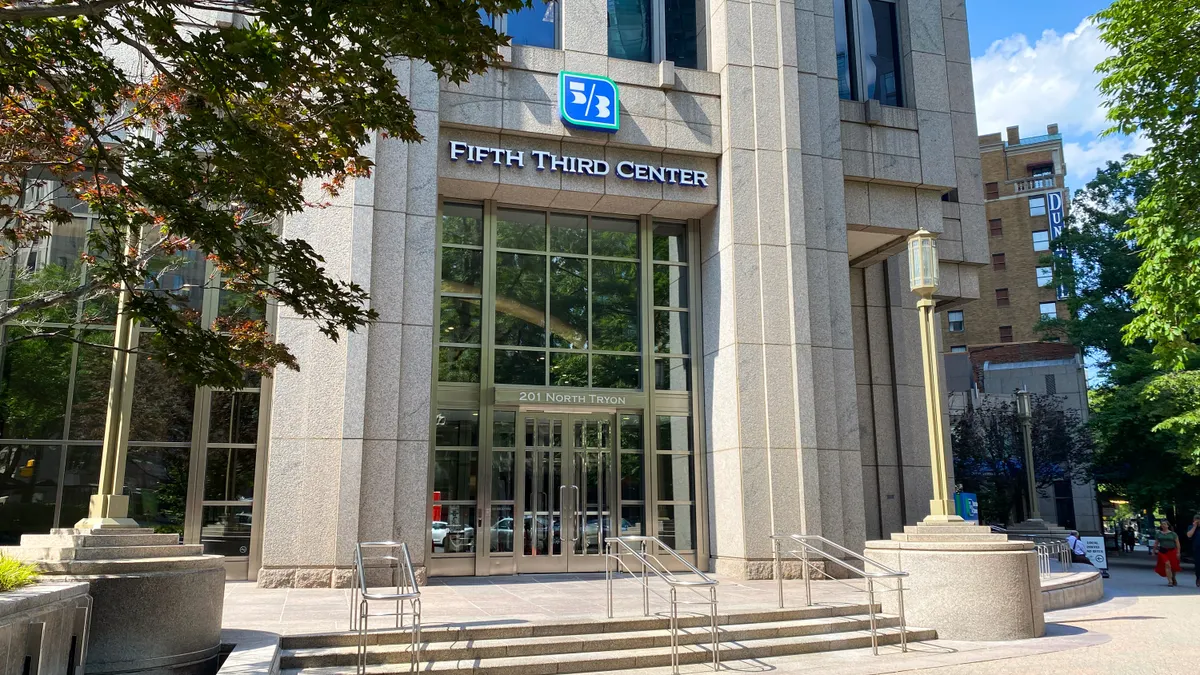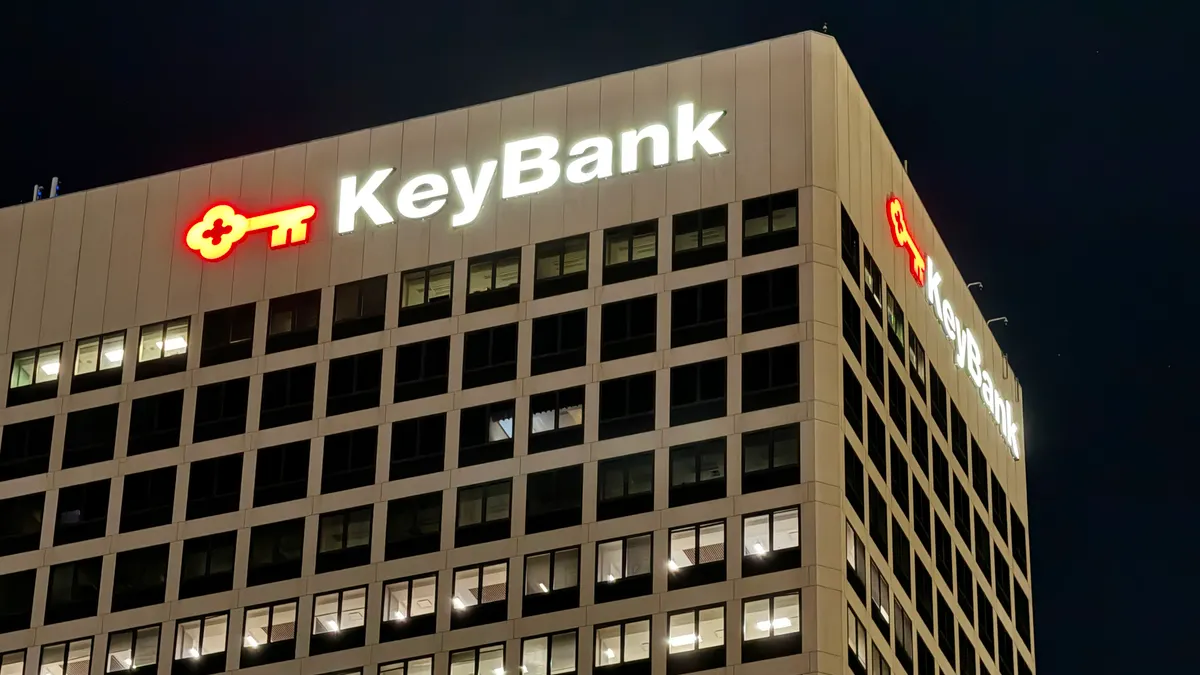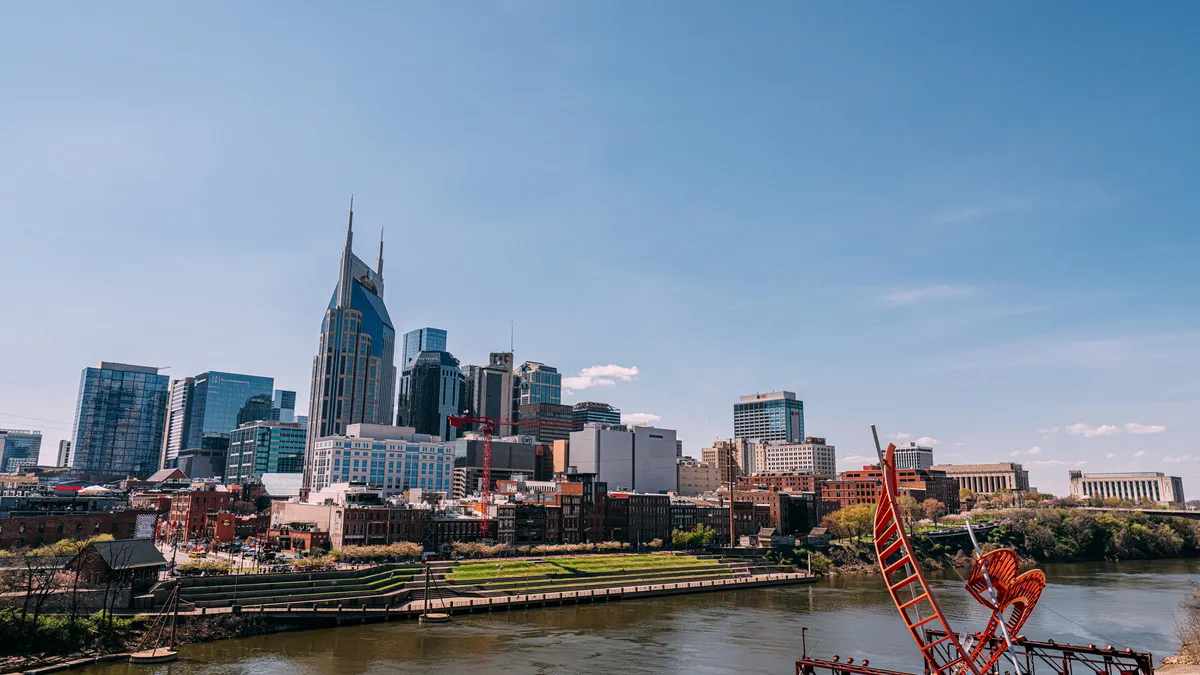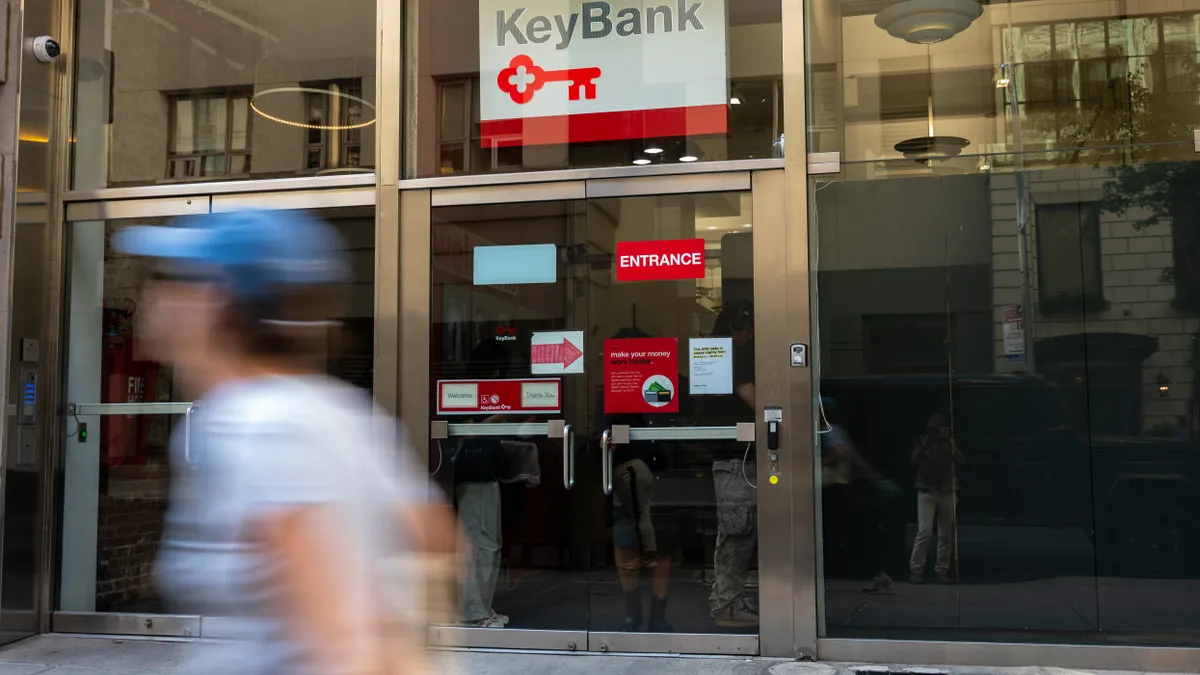In the early days of the pandemic last year, Dave, a challenger bank and personal finance app, made adjustments to its work structure, allowing employees to work from home as well as relocate to cities outside of the fintech’s headquarters in Los Angeles.
"Dave was a company where everyone was in person, pretty much, five days a week, and pretty much in one office in Los Angeles," said Shannon Sullivan, chief people officer at Dave. "So once the pandemic hit, the company went completely remote."
While many traditional banks and financial institutions are navigating their return-to-office procedures, fintechs like Dave have instead implemented company-wide changes to their operations such as a virtual-first model and a national pay scale for all employees.
"Our virtual-first model means our employees can live and work anywhere in the U.S.," said Sullivan. At the moment, the only state excluded is Hawaii, for compliance reasons, Sullivan added.
Allowing employees to live and work across the country initially raised some questions about pay, Sullivan said.
"We had to really figure out how we would pay people in this model because, historically, many companies base their pay scales on local labor rates," Sullivan said.
Ultimately, the company decided to institute a national pay scale based on the California labor market, regardless of where their employees work.
"We expect our employees to contribute at the same level, frankly, if not even a little higher than pre pandemic because of the flexibility and benefits that we're providing," she said. "If one day you were working for the company but on the next day you decided to move to Michigan to be closer to your family and be an integral part of helping elderly parents, for us, it felt really weird to say, 'Now you’re worth less.'"
As the company adapts to a workforce that includes some virtual employees, Sullivan said Dave is conscious of how remote work can at times have a negative impact on career mobility.
"We don't want you to have a different experience. So when we think about career mobility or your ability to get promoted or to get on leadership teams, that will not be, for Dave, dependent on where you choose to live or whether you choose to have facetime or not, because we expect team members at all levels, including our senior leadership over time to be spread out across the U.S. and even the globe one day," she said.
Shifting to virtual work has also helped the team respond to what Sullivan described as a "breakout year" for the company.
Dave, which launched in 2017, started off as a personal finance tool to help customers budget and avoid overdraft fees. Dave also has a job-search feature called Side Hustle, a product Sullivan said has helped users earn more than $160 million.
The fintech, which says it has 10 million customers that use its personal finance tools, rolled out its digital banking product, Dave Banking, last summer. The company said it has 1.3 million customers currently using the digital banking platform.
Dave also plans to go public through a merger with a blank-check company sponsored by Chicago-based investment firm Victory Park Capital at a valuation of $4 billion by the end of the year.
"Being a virtual firm really allows us to have far fewer restrictions than we would have had we not adopted this model and actually allowed us to bring in good talent and as quickly as possible," Sullivan said.
Dave currently has 175 employees and plans to hire 110 more by the end of the year, she added.
"I think the silver lining of the pandemic is that it really forced companies to listen to what their team members want, maybe more so than they have in the past," Sullivan said. "What we're finding, industry-wide, especially in tech, is that people want to have both a great career, and also a really rewarding personal life. And that means they want some flexibility to get work done, where they want, when they want."
Office space
Despite the pivot to more virtual work, Dave still sees the value in having a physical office space for employees.
The company is in the middle of relocating its current L.A. headquarters to a new office in L.A.’s Pacific Design Center.
"We're designing it to be built for collaboration, because we understand and believe that most people, when they come to the office, it's not necessarily to work alone. It’s to connect and meet with folks in person," she said.
The company is also looking to open up a small satellite office in San Francisco for its 25 employees that live in and around the city.
In the future, when it’s safe to do so, Sullivan said the company plans to host company-wide gatherings once or twice a year, in an effort to foster collaboration and connection among employees.
Dave also distributes a quarterly engagement survey to help gauge how employees are feeling about the culture and the values of the company, she said.
"It's a combination of creating these moments and these opportunities where people can actually come together, but also making sure that we don't have an ego and think we've solved for all of this, and have everything figured out," she said.


